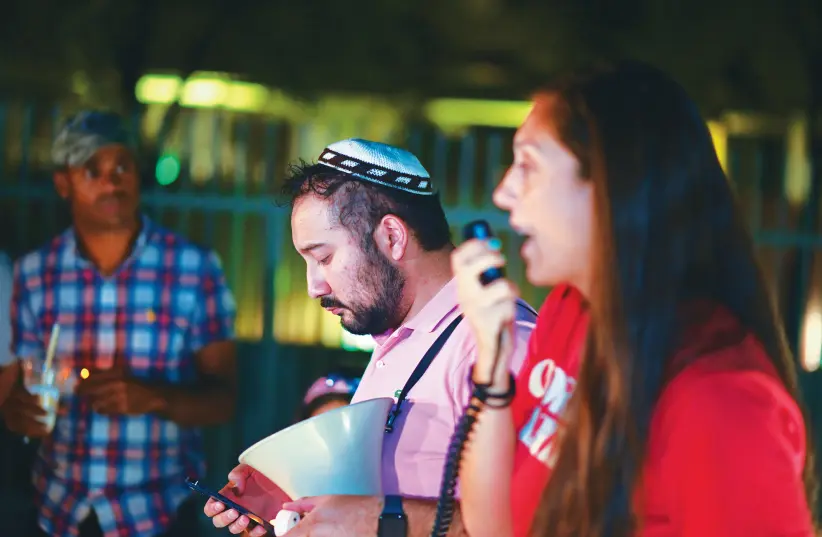Last fall, during Sukkot, Uri L’Tzedek and Jewtina y Co. joined forces to host the very first Darchei Tzedek/Caminos a la Justicia Immigration Retreat.

The experience of immigration, of having to find belonging in a foreign land, lies at the core of Jewish identity. Throughout our history, the Jewish community has migrated all over the globe, rendering our global community into a rich tapestry of diverse heritages and cultural traditions. In the 20th and 21st centuries,– due to global political unrest – Jewish immigration has occurred at unprecedented rates, with millions of Jews finding new homes across the world, especially in the United States and Israel.
Jewish global migration transforms our historical relation to immigration into a deeply personal, familial one. One would be hard-pressed to find a Jewish person who doesn’t have an immigrant within a few generations. And yet, despite immigration being so intimate and close to us, we don’t always examine the routes our roots have taken.
Our immigration and refugee stories were and are often motivated by experiences of genocide, war and famine, and our forced scattering across the globe has created a multicultural Jewish people. To share immigrant and refugee stories is to regain contact with the multicultural nature of our community. It is also to connect our collective traumas and hardships with a reality that many people, Jewish and non-Jewish, face today at our country’s borders.
Darchei Tzedek/Caminos a la Justicia Immigration Retreat
Last fall, during Sukkot, Uri L’Tzedek and Jewtina y Co. joined forces to host the very first Darchei Tzedek/Caminos a la Justicia Immigration Retreat. It was the perfect opportunity to reconnect with the stories of migration unfolding within and around us. The Retreat gathered Jews of Color at our country’s border to explore how Ushpizin – the practice of inviting guests into the sukkah – can be harnessed into a powerful Jewish immigration rights movement, especially in the face of the ongoing immigration crisis.
To arrive at the border town of Nogales, Arizona during Sukkot was to embody the spirit of the sukkah in a radical way – God commands us in Leviticus 23:42 to dwell in temporary shelters in order that we remember our ancestral experiences of immigration. By making our way to Nogales, and looking onto the exact location where Eddie and his mother – along with a handful of other cohort participants – crossed the border, we created a multicultural Jewish presence in an area where dreams and resiliency meet fear, violence and prejudice on a daily basis.
Seeing life on the other side of the United States-Mexico border was a powerful reminder of our personal connections to the hardships of immigration, as well as the humanity that is lost when we talk about immigration policy. Standing in silence along the 1,933-mile southern US border, our bodies became temporary shelters, safeguarding hope.
The Caminos a la Justicia-Darchei Tzedek immigration retreat unlocked the deep potential that occurs when Jews of Color gather as a community. As individuals with diverse backgrounds and experiences of Jewishness, coming together lets us access the elements of our identity that are quintessentially Jewish in nature: finding belonging as dreamers and travelers, channeling tradition through hardship, and combating injustice anywhere we see it.
The word caminos means pathways in Spanish, and this is but a start of multiple caminos that Uri L’ Tzedek and Jewtina y Co. have in construction for the future. In a time where the narrative around immigration and migration has become immensely politicized, we all have an obligation to remind ourselves of our own migration stories and ground ourselves in the humanity of each and every story.
Analucía Lopezrevoredo, a PhD is founder & executive director of Jewtina y Co. Eddie Chavez Calderon is campaign director at Uri L’Tzedek.
